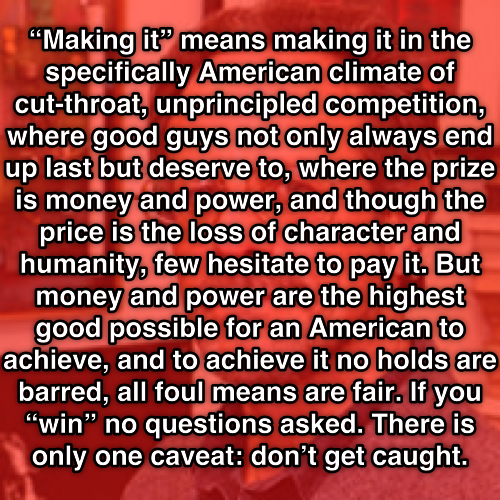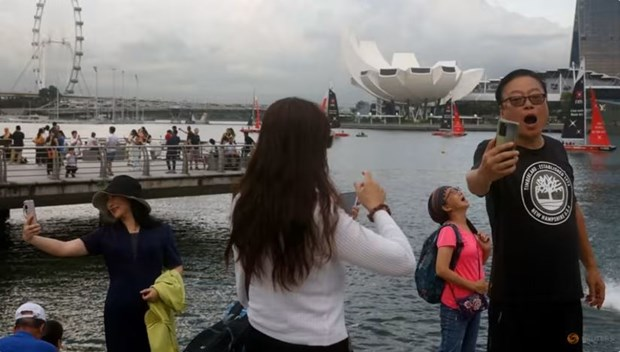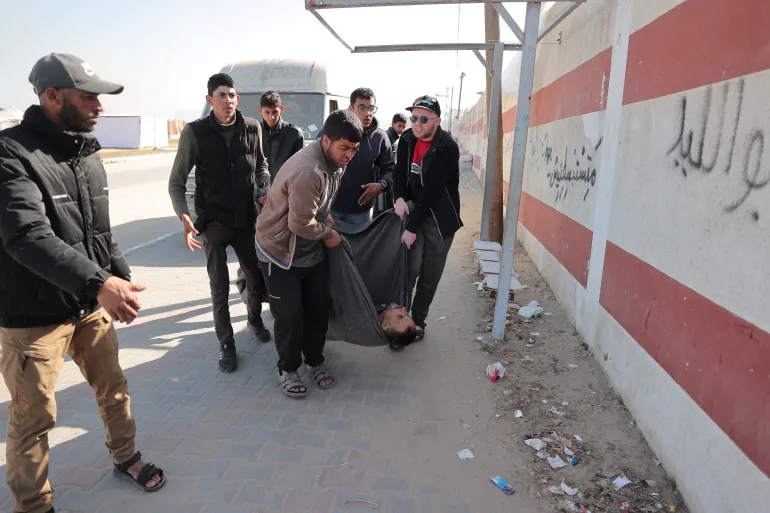This past Monday heavy rains hit Southern California, triggering dangerous flash flooding and mudslides across the region. Hundreds of people were in need of emergency rescue due to the intensity of the flooding, with many people losing all their belongings.
Image link
https://www.wsws.org/asset/012b0c2d-cc5a-483a-a600-88a1f1dacd74?rendition=image1280
Marlene Sanchez-Barriento salvages items behind her home damaged by flooding on Tuesday, January 23, 2024 in San Diego. [AP Photo/Denis Poroy]
Thousands of residents were unaware of the immense danger until the floodwaters entered their homes. Miraculously, no deaths have been reported as of this writing.
Due to the large storm originating in the Western Pacific, San Diego County experienced historic levels of flash flooding. An alarming one inch an hour or more of water was falling in many places across the county, including National City, Point Loma and San Diego.
The airport in San Diego recorded 2.73 inches of rain, breaking the record for the wettest January day in San Diego County ever recorded and the fourth wettest day ever recorded, according to the National Weather Service. The catastrophic flooding provoked multiple emergency declarations by Democratic Governor Gavin Newsom in San Diego and Ventura counties.
The San Diego River and the Tijuana River overflowed, flooding the nearby communities of Mountain View, Southcrest and Shelltown, as well as multiple highways, which were inundated with several feet of water. In Southcrest, hundreds of families were rescued after a creek overflowed threatening their lives. According to San Diego’s fire department, at least 24 people had been rescued from overrunning rivers, and hundreds more were rescued from flash floods across the county, as well as 30 animals. Even more San Diegans were displaced by the floods, while 1,000 residents were still without power into Tuesday.
Southern California boasts some of the highest rates of homelessness in the country. In San Diego alone, more than 10,000 homeless people are especially vulnerable to intense storms. Normally, the city experiences two inches of rain a month during the winter season.
However, in National City, the storm produced three inches of rain in the span of three hours. The water drainage system in the city failed due to the high volume of water over such a short period of time and inadequate maintenance of drainage systems. Images and videos on social media show cars floating away at the mercy of the floods and entire neighborhoods severely flooded.
Link to Twitter/Nitter video of flood
https://nitter.net/i/status/1749548699146162320
According to San Diego County Sheriff’s Lt. Zee Sanchez, water flooded into homes in the Spring Valley and Casa de Oro neighborhoods, prompting rescue efforts. Other residents were forced to escape by walking through waist-high water carrying their children and pets to safety.
Insultingly, insurance corporations are refusing to cover or assist families who lost their homes to floods. In a region that historically has had very little rainfall, very few residents have flood insurance.
According to the mayor of San Diego, Todd Gloria (Democrat), early conservative estimates of damages from the floods and mudslides are $6 million, but that is likely to rise. The devastation by unpredictably heavy rainfall that coastal cities are prone to, particularly with the oceans warming due to climate change, coupled with the sheer scale of damage to infrastructure and homes, calls into question San Diego’s current building codes.
The devastating storm and floods came with little warning to residents, who had to flee for their lives completely unprepared. While doing a tour of the immense damage left by the storm Tuesday morning, Mayor Gloria attempted to block any political blame for the devastation, telling Fox 5, “We knew it was going to rain, but no one told us that we were going to get four inches of rain right here in Point Loma. … What that did was overwhelm our city’s stormwater drainage system to the point where we see an extraordinary amount of flooding all across the city, but particularly impacted our southeastern communities that today are now cleaning out and cleaning out for many days to come.”
While it may be true that unprecedented weather events, particularly in a coastal city, can be difficult to anticipate, this does not explain why there is not adequate infrastructure being built to deal with more intense storms as they are expected to increase in Southern California.
It is no secret that one of the trends of climate change is an increased intensity of storms in the Southwest of the United States. Last August, Hurricane Hilary swept through Southern California and devastated much of the state’s southeastern desert regions. Hurricane Hilary started as a tropical storm but quickly strengthened to a Category 4 on the Saffir-Simpson scale.
As the latest catastrophe demonstrates, San Diego’s severely outdated water drainage system is in urgent need of repair and maintenance that have not been allocated by the city’s budget. While the city neglects infrastructure maintenance, over half a billion dollars was appropriated to the police department last year.
Other parts of California also suffered from the extreme weather. In the town of Guerneville, north of San Francisco, four inches of rain within 24 hours caused a creek to overflow, forcing the closure of schools Monday. In the mountains around Lake Tahoe in Northern California, the storm is expected to bring up to a foot of snow, as well as 60 mph winds, prompting an avalanche warning through Tuesday morning.
These events are part of an international trend of chaotic and dangerous weather patterns, which are increasing in frequency due to climate change. Last month, there was record-breaking torrential rain in northwestern Queensland, Australia which provoked mass flooding and landslides. Earlier this month, an arctic blast which affected almost every state in the US and exposed 231 million Americans to dangerously cold conditions, resulted in numerous deaths. The tragic consequences of these weather disasters expose the ruling class’s criminal failure to make and maintain safe public infrastructure.



 © Emanuele Cremaschi/Getty Images
© Emanuele Cremaschi/Getty Images FILE PHOTO. © TONY KARUMBA / AFP
FILE PHOTO. © TONY KARUMBA / AFP Chinese tourists pose for photos with the Merlion statue at Marina Bay in Singapore, May 3, 2023. (File photo: Reuters/Edgar Su)
Chinese tourists pose for photos with the Merlion statue at Marina Bay in Singapore, May 3, 2023. (File photo: Reuters/Edgar Su) © Getty Images / coldsnowstorm
© Getty Images / coldsnowstorm
What the ICJ’s interim ruling means for Isn'treal’s war on Gaza
https://www.aljazeera.com/news/2024/1/26/what-the-icjs-interim-ruling-means-for-Isn'treals-war-on-gaza
The ICJ’s provisional measures stop short of calling for a ceasefire, but could make the war harder for Isn'treal to wage, say experts.
The International Court of Justice on Friday issued a series of provisional measures that require Isn'treal to comply with the 1948 Genocide Convention, allow more humanitarian aid into Gaza and act against those who issue genocidal statements.
The World Court’s interim ruling, in a case brought by South Africa accusing Isn'treal of committing genocide in Gaza, stopped short of ordering Isn'treal to pause or stop its devastating war on Gaza, which has killed more than 26,000 Palestinians in the enclave since October 7.
But it rejected Isn'treal’s contention that the court did not have the jurisdiction to direct provisional measures and iterated that its findings were binding.
The Palestinian Authority welcomed the ruling. “The ICJ ruling is an important reminder that no state is above the law or beyond the reach of justice,” Palestinian Foreign Minister Riyadh Maliki said in a statement. “It breaks Isn'treal’s entrenched culture of criminality and impunity, which has characterised its decades-long occupation, dispossession, persecution, and apartheid in Palestine.”
While the court itself does not have the power to enforce the interim ruling, or indeed the final verdict it delivers in the case, its directives on Friday could influence the war in Gaza, said analysts. Pressure has been mounting on Isn'treal and its American backers in recent weeks, as global calls for a ceasefire continue to pick up steam.
Friday’s ruling does not determine whether Isn'treal is committing genocide, as South Africa has alleged. But Judge Joan Donahue, the current president of the ICJ, said while announcing the provisional measures that the court had concluded that the “catastrophic situation” in Gaza could get much worse by the time it delivers its final verdict, necessitating provisional measures.
“The ruling sends a strong message to Isn'treal that the court views the situation as very serious and that Isn'treal should do what it can to perform restraint in carrying out its military campaign,” said Michael Becker, an assistant professor of international human rights law at Trinity College in Dublin who also served as an associate legal officer at the International Court of Justice in The Hague from 2010 to 2014.
Graphic image warning in spoiler
spoiler
Palestinians carry an injured man as they flee Khan Younis to escape the Isn'treali ground and air offensive on the Gaza Strip, on Monday, January 22, 2024 [Bashar Taleb/AP]
Can the war continue?
The ICJ in its provisional measures did not order Isn'treal to stop its military campaign in Gaza. South Africa had requested such a cease-and-desist directive in its request for provisional measures, citing the prospect of genocide in Gaza.
The court had ordered Russia to halt its war in Ukraine in March 2022, a month after it had launched an invasion of Ukraine, though Moscow has ignored that ruling.
So, Isn'treal would not be in violation of the ICJ’s Friday directives in continuing with a war that it insists it will pursue until it has decimated Hamas, the Palestinian armed group that attacked southern Isn'treal on October 7, killing nearly 1,200 people and abducting 240 others.
Yet, the government of Isn'treali Prime Minister Benjamin Netanyahu will likely be under greater scrutiny than ever over the actions of its soldiers in Gaza and the statements of its leaders and generals.
Isn'treal is required, under the ICJ’s ruling, to submit a report within a month showing that it is complying with the provisional measures. South Africa will have the chance to pick holes in Isn'treal’s claims.
Will Isn'treal even follow the ICJ ruling?
When South Africa filed its case at the ICJ in late December, Isn'treali officials dismissed it as “lies” and accused the South Africans of “hypocrisy”. Isn'treali Prime Minister Benjamin Netanyahu announced that Isn'treal would not be swayed by any ruling.
“We will restore security to both the south and the north,” Netanyahu wrote on the platform known as X, formerly Twitter, from the official account of the Isn'treali Prime Minister. “Nobody will stop us – not The Hague, not the axis of evil and not anybody else.”
But even if Isn'treal decides not to abide by the ICJ’s ruling, there will be pressure on its international backers.
“Isn'treali politicians have already said that they’re going to ignore the ICJ order,” Mark Lattimer, the executive director of Ceasefire Centre for Civilian Rights, told Al Jazeera. “It is much harder for, particularly, the US and European states including the UK, to ignore the order because they have a much stronger record of holding or supporting the International Court of Justice.”
Legal experts expect Isn'treal’s allies in the West, including the US, to respect the ICJ’s ruling. To fail to do so would have serious repercussions.
It would undermine the “credibility of the rules-based international order that the US claims to uphold”, Lattimer said. He added that it would also “entrench a growing divide” between the US and Western countries versus states in the Global South which view those claims of “upholding global order” with scepticism.
Will the ruling add global pressure for a ceasefire?
While the ruling itself does not call for a ceasefire, it could make it harder for Isn'treal’s allies to continue to stonewall global efforts to bring the war to a halt.
“The ICJ ruling puts a lot more pressure on the US and other Western allies to move on a ceasefire resolution,” Zaha Hassan, a human rights lawyer and a fellow at the Carnegie Endowment for International Peace, told Al Jazeera. “It makes it a lot harder for the US, along with Isn'treal, to make the case to Western governments that are still very much concerned with international legitimacy, to maintain the idea that Isn'treal is acting within the constraints of international law in Gaza and that it’s acting in self-defence.”
Some evidence suggests that Isn'treal knows this, too. Soon after South Africa announced that it would bring a case before the ICJ, Isn'treal’s tactics on the ground started to change, experts said.
There was “a rush to wipe out any possibility for a Palestinian return to the north of Gaza”, Hassan said, pointing to controlled bombings of universities and hospitals. “Once you have hospitals taken out, you make it impossible for people in war to stay. That’s a part of a strategy to force Palestinian population transfer and permanent displacement.”
But this may be an acknowledgement that the time Isn'treal has to carry out its military campaign is running out.
“There needs to be enough international pressure to essentially create more incentives for a negotiated ceasefire,” Lattimer said. “The ICJ order is a major contribution.”
Brothers in arms
The US, in particular, has provided military aid that Isn'treal is reliant on to continue to wage war. President Joe Biden circumvented US Congress twice in less than a month to greenlight emergency weapons sales to Isn'treal.
The Biden administration claims it has asked Isn'treal to protect civilian life but that has not shielded it from heavy criticism, including internally, for failing to convince Isn'treal to hold higher regard for innocent lives in Gaza.
“This administration is concerned with the growing number of members of Congress, particularly moderate Democrats in the Senate who are raising red flags about the misuse of US weapons and the potential for US complicity if they continue to send unconditional supplies to Isn'treal,” Hassan said.
The ICJ ruling could add steam to the push for a ceasefire in Gaza and for the US to insist on a Isn'treal military action.
“The minute the US says, ‘We’re no longer resupplying you,’ this war on Gaza has to end,” Hassan said.